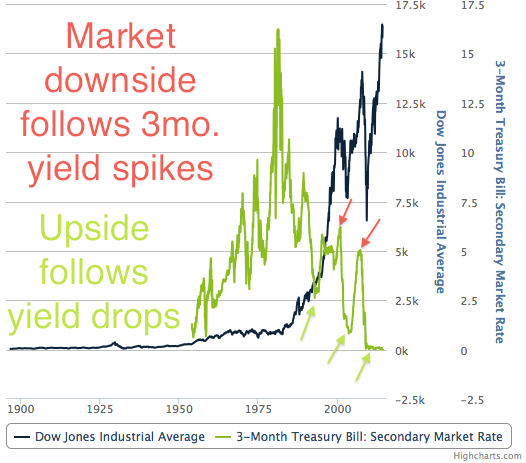The Basics Of The TBill_1
Post on: 11 Август, 2015 No Comment

Yield and Tax Treatment
The interest that is paid on T-bills is always taxable as ordinary income at the federal level, but never by states or localities. For this reason, the interest from these securities is attractive to conservative investors in states with high tax rates. Investors have the option of having up to half of the interest paid on their bills withheld for tax purposes.
The yields on T-Bills are always slightly lower than those of other comparable securities such as CDs. This is because of their perceived safety due to the direct governmental guarantee of interest and principal, regardless of whether this obligation can actually be met. Of course, the yield on a T-Bill rises as the time to maturity lengthens.
Investment Strategies
Investors with short-term time horizons can always turn to the laddering strategy to maximize their yields and minimize risk. This concept allows parcels of cash to become available at periodic intervals that can be reinvested at current market rates. Another conservative strategy is to invest the majority of a portfolio into T-Bills and then allocate a very small percentage into aggressive assets such as derivatives that could appreciate substantially in price if the markets move in the right direction. Of course, if the markets move in the opposite direction, the T-Bills will grow back to the original amount of principal at maturity. Or they may need to be reinvested a time or two, depending on the ratio of T-Bills to risky assets in the portfolio .

Of course, since the primary characteristic of T-Bills is that they offer a guaranteed return of principal, they typically function as the “safe” portion of an investment portfolio. They are often used in lieu of cash by knowledgeable investors who understand that they pay a higher rate of interest than cash instruments or accounts such as money market funds. This also makes them attractive for institutions bound by fiduciary requirements that prevent them from risking the principal of their funds in any way. However, T-Bills are still subject to both inflation risk and interest-rate risk, and investors who seek to outperform the markets over time should generally look elsewhere to fulfill their investment objectives.
The Bottom Line
T-Bills are useful tools for conservative investors who seek higher yields than what are available in cash accounts such as money market funds. Although they cannot grow faster than inflation over time. they do offer liquidity, safety of principal and exemption from state and local taxation.














